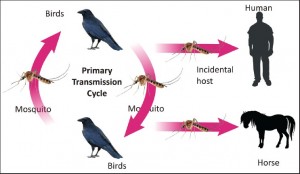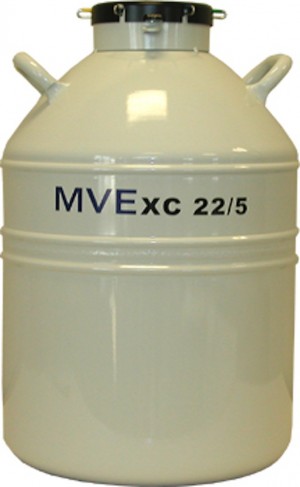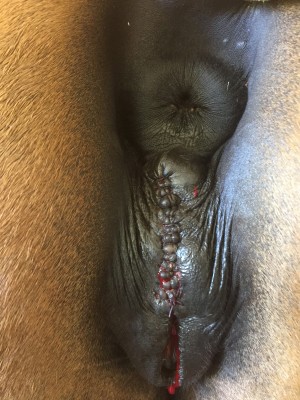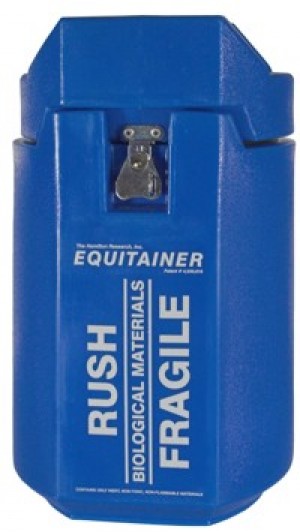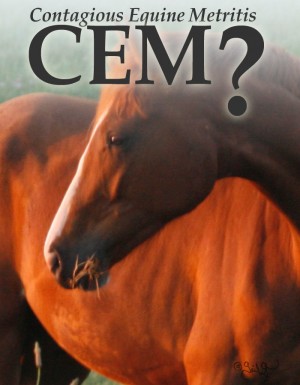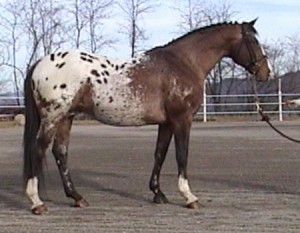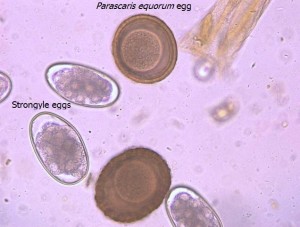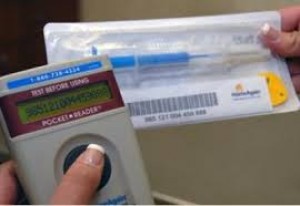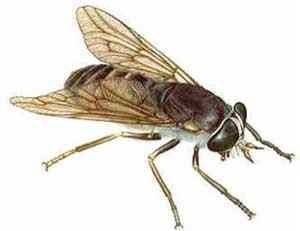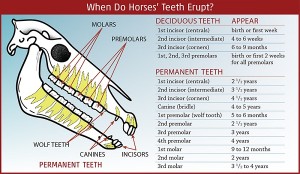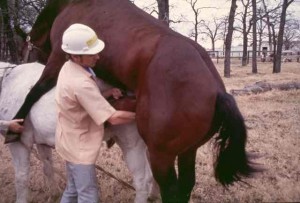Immunizations, aka Vaccinations
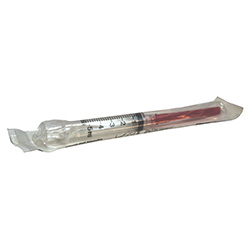
A standard vaccination program for all horses does not exist. Each individual situation requires evaluation based on one or more areas of concern. The American Association of Equine Practititoners (AAEP) makes the following points concerning vaccination of your horse. Know as much as you can about the infectious disease risks in your own area. If you are not sure, ask your health care provider. What are the groups of horses on your farm or in your care (i.e., broodmares, foals, weanlings, show horses, retirees). Are there immunization requirements placed upon your horse with respect to future shows or events, boarding barns, breeding farms, and etc. What are the monetary costs to you as the horse owner with respect to the real or perceived benefit of a specific immunzation plan and its components?
Each vaccine has its own manufacturer recommendations with respect to primary immunization schedule (e.g., foals, weanlings, or never vaccinated before with this product), and annual or booster immunization. Be familiar with these recommendations if you are vaccinating your own horses or discuss them with your veterinarian as you institute their use on your farm or with your horse.
Maintaining vaccines at the appropriate temperature from transport from manufacturer/supplier to patient administration is a very important aspect of proper immunization delivery programs. Lack of adherence to proper temperature maintenance can result in lack of efficacy, undue vaccine failures, and an increased rate of adverse reactions post vaccination. Veterinarians are trained in appropriate vaccine handling, storage, and administration; it is their responsibility to assure you that the products they administer on your behalf are ordered, transported, stored, licensed, and given by an appropriate method and route of delivery to ensure optimal efficacy.
Adverse reactions are not always predictable and are always an inherent risk of administering any vaccine product. Therefore, it is usually recommended that horses NOT be vaccinated in the 2 weeks prior to shows, performance events, sales or domestic shipment. Some veterinarians may elect NOT to vaccinate horses within 3 weeks of international shipment. After receiving a vaccine(s) intramuscularly (IM), some horses experience local muscular swelling and soreness or transient, self-limiting signs including fever, anorexia and lethargy. Severe reactions at sites of injection can be particularly troublesome, requiring prolonged treatment and convalescence. Vaccine lot and serial numbers should be noted in horses\' vaccination records. The ability to provide this information when reporting an adverse reaction will facilitate an investigation. Adverse immunization events may be reported to the USDA Center for Veterinary Biologics at (1-800-752-6255).
Core vaccinations that almost every horse needs to have on an annual basis.
- Eastern and Western Equine Encephalomyelitis and Tetanus Toxoid (EWT)
- Rabies
- West Nile Virus (WNV)
Risk-based vaccinations are those that should be considerd based upon the risk your horse may have to exposure to that specific disease.
- Equine Influenza (EIV)
- Equine Herpes Virus (EHV1/4, Rhinopneumonitis)
- Botulism
- Potomac Horse Fever (PHF)
- Strangles
- Leptospirosis (Lepto)
- Equine Viral Ateritis (EVA, EAV)
- Snake Bite
- Anthrax
- Rotavirus (Rotaviral Diarrhea)
- Equine Coronavirus (EC)
Call or visit with Dr. Ley concerning a specific immunization plan for your horse, or the horses at your farm.
Dr. William B. Ley DVM, MS, DACT Services
Related Links
Allowed: 64M/67108864KB.
Current: 5616KB. Peak: 5686KB.



